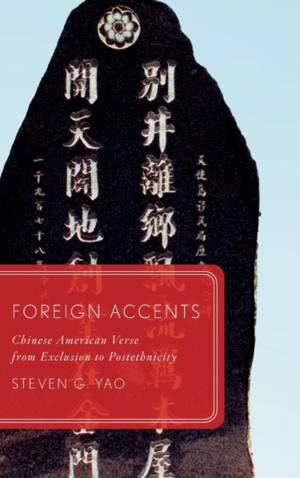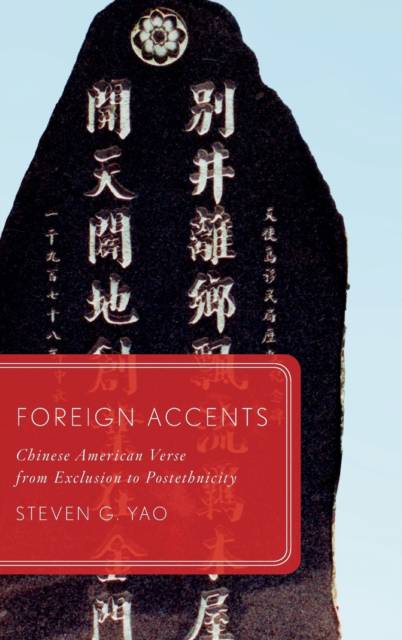
- Afhalen na 1 uur in een winkel met voorraad
- Gratis thuislevering in België vanaf € 30
- Ruim aanbod met 7 miljoen producten
- Afhalen na 1 uur in een winkel met voorraad
- Gratis thuislevering in België vanaf € 30
- Ruim aanbod met 7 miljoen producten
Zoeken
€ 74,45
+ 148 punten
Omschrijving
Foreign Accents examines the various transpacific signifying strategies by which poets of Chinese descent in the U.S. have sought to represent cultural tradition in their articulations of an ethnic subjectivity, in Chinese as well as in English. In assessing both the dynamics and the politics of poetic expression by writers engaging with a specific cultural heritage, the study develops a general theory of ethnic literary production that clarifies the significance of "Asian American" literature in relation to both other forms of U.S. "minority discourse," as well as canonical "American" literature more generally. At the same time, it maps an expanded textual arena and a new methodology for Asian American literary studies that can be further explored by scholars of other traditions. Yao discusses a range of works, including Ezra Pound's Cathay and the Angel Island poems. He examines the careers of four contemporary Chinese/American poets: Ha Jin, Li-young Lee, Marilyn Chin, and John Yau, each of whom bears a distinctive relationship to the linguistic and cultural tradition he or she seeks to represent. Specifically, Yao investigates the range of rhetorical and formal strategies by which these writers have sought to incorporate Chinese culture and, especially, language in their works. Combining such analysis with extensive social contextualization, Foreign Accents delineates an historical poetics of Chinese American verse from the early twentieth century to the present.
Specificaties
Betrokkenen
- Auteur(s):
- Uitgeverij:
Inhoud
- Aantal bladzijden:
- 336
- Taal:
- Engels
- Reeks:
Eigenschappen
- Productcode (EAN):
- 9780199730339
- Verschijningsdatum:
- 27/10/2010
- Uitvoering:
- Hardcover
- Formaat:
- Ongenaaid / garenloos gebonden
- Afmetingen:
- 236 mm x 163 mm
- Gewicht:
- 615 g

Alleen bij Standaard Boekhandel
+ 148 punten op je klantenkaart van Standaard Boekhandel
Beoordelingen
We publiceren alleen reviews die voldoen aan de voorwaarden voor reviews. Bekijk onze voorwaarden voor reviews.











